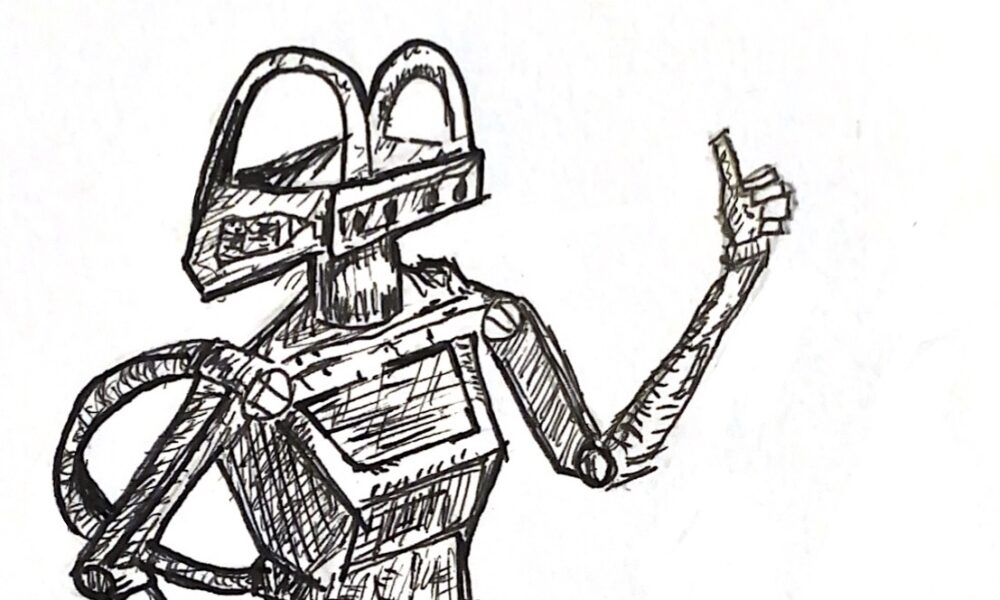One of my all-time favourite films, Her, follows Theodore (Joaquin Phoenix), a lonely divorcée who finds himself falling deeply in love with the virtual assistant on his phone. When it premiered in 2013, it seemed like an outlandish sci-fi fantasy; who would want to date a computer program? Yet, here we are—and our reality is even scarier than the movies.
On Aug. 24-25, researchers at the University of Quebec à Montreal (UQÀM) hosted a conference titled “Love and Sex with Robots.” The conference was led by researchers from across the province to explore the use of “erobotics”—erotic-robotics—spanning from “intimacy dolls” to artificial intelligence (AI) chatbots that can simulate a human partner.
Creators of the event claim that the use of technology to replicate romantic and sexual relationships is inevitable and, therefore, merits exploration. It’s hard to argue that any topic is unworthy of research, but there is reason for concern about the direction in which this research is heading.
Not long ago, a relationship as detached from reality as one with a doll would have been a red flag for many mental health professionals; when did disengaging from reality and retreating into a fantasy world become a recommended practice? It raises troubling questions. Why are people turning to technology to fulfill their most basic human need: Connection? Is it because they find it easier to interact with a machine with no human needs, boundaries, or capacity for disagreement? Are we becoming so accustomed to relationships that exist on our terms alone—relationships we can control, pause, or shut down—that we are losing the skills to navigate fundamental human interactions?
Rather than funding and pushing forward innovations that use technology to simulate intimacy, we should focus on the fundamental issue at hand: The loneliness epidemic that has only been worsened by our reliance on virtual interactions. Prescribing technology as an antidote to a problem that is, in large part, caused by technology, is absurd. Research shows that as people feel more connected online, they can begin to neglect the real relationships that they have all around them and, slowly but surely, feel less confident socializing in person. Then, when it is time to turn off the screens, they find themselves lonelier than before.
Proponents of “erobotics” suggest it could help individuals become more comfortable with their sexuality or serve as a tool for sex education. Still, this view misses a critical point: Technology designed to fulfill personal desires creates a controlled environment that cannot replicate the complexity of genuine relationships. Human relationships are inherently messy. They require vulnerability, reciprocity, and an acceptance of imperfection—all things that technology, no matter how advanced, cannot simulate.
To its credit, the conference did tackle some ethical implications of erobotics. However, this only further demonstrates how easily this technology can take a dark turn. Consider deepfakes—AI that can alter images and audio to create convincing but fake representations of real people. Sometimes, it can be amusing—such as videos of politicians saying silly things—but more often, it’s downright horrifying—like blackmail and revenge pornography.
The horror goes beyond screens, as dolls like Frigid Farrah enter the market, designed with “resistance settings” that allow users to simulate rape; other dolls are even designed to resemble children. At best, this technology pushes people further into self-isolation and loneliness; at worst, it enables terrifying, violent behaviour. Technology has made it increasingly easy to retreat into self-isolation. Rather than attempting to fill the emotional gaps in our lives with new technology that only further enforces isolation, the countless hours (and dollars) put toward “erobotics” research would be far more effective if it were aimed at enforcing what will truly fix the problem: Love, community, and the irreplaceable value of human relationships. Spoiler alert: By the end of Her, Theodore realizes that AI can never replace real human connection. The hope is that we all come to that same conclusion, too—sooner rather than later.








